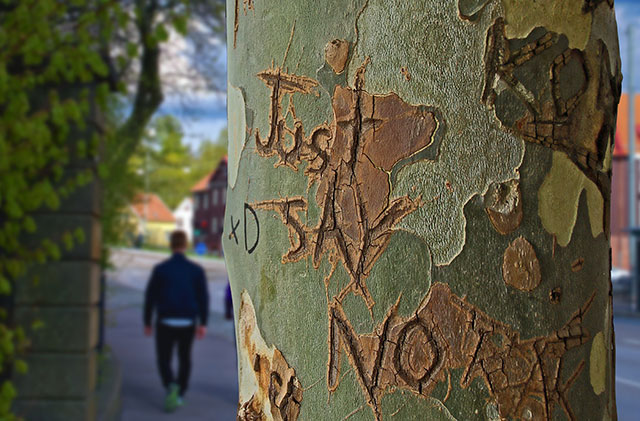|
"Just say no" just won't cut it if parents hope to persuade children to make smart choices about drugs. You need to look at your own issues and beliefs around drugs and alcohol so that you feel clear about it yourself. It sometimes is better to give kids an honest answer when they ask, "Did you do it?".
You do not have to tell all but it sets up more of a connection if you're willing to be honest with your teen. The message to avoid drugs needs to be absolutely clear, he said. Saying it's all right to get high on weekends, or marking adult celebrations with raucous drinking, is bound to make an impression. Adults may need to make changes in their own lives to send a consistent message. It's important to have a dialogue, rather than give a lecture. It might not stop kids from doing drugs altogether, but the approach will make them think harder when confronted by the chance to experiment. When I tlk to teens about drugs I explain the effect of drugs on developing brains, and the relative potency of drugs today compared with those that were popular in the 60s and 70’s. I also addressed the particular issue of edible marijuana. These "edibles" pose a double threat: Not only are they much stronger than marijuana that is smoked, kids also may make the mistake of eating several before realizing how hard the drug will hit. Once (the high) comes on all of a sudden, they're tripping. They're breaking from personality and getting into a kind of psychosis. You're leaving your ego. It can be interesting or it can be really, really scary. Instead of a two- to three-hour high from smoking, edibles can cause a six- to eight-hour high. The issue with edibles, is that they can lead to a hallucinogenic experience. Kids can become terrified because they're on this bad trip, especially because they don't know what is going on. What they experience first is, 'I'm going crazy. I don't think I'm going to come back the way I left.' The heart starts to beat faster, and that kind of feeds on itself. I suggest a three-part approach to a conversation about drugs. "Tell your child, 'I love you.' Explain to your tee that you see all this stuff (drug use) everywhere and that it scares you. Then, just listen to their response. That usually begins a productive dialogue with our teen. It's important you as a parent, don't just say “no because I say so,” or “no because it's illegal,” If all you say is “no” the response you may encounter is ”'Yes, yes, yes.” Thom Kessler, LMFT, RAS Thom@thomkesslertherapist.com 415-454-8931 |
Thom KesslerMarriage & Family Therapist and Registered Addiction Specialist Archives
January 2024
Categories |

 RSS Feed
RSS Feed